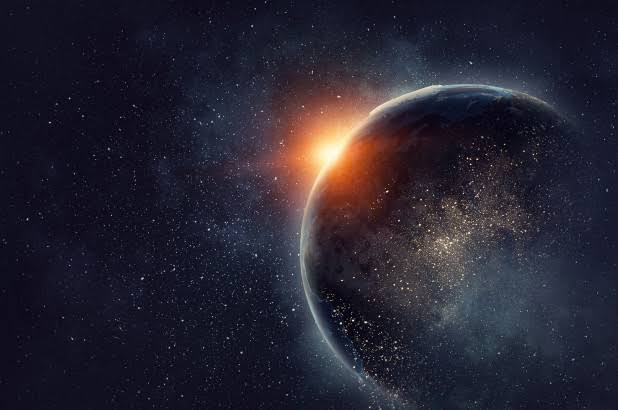
There’s a little possibility the universe may really be a major loop, a group of scientists report in a new paper published in Nature Astronomy. The researchers—University of Manchester cosmologist Eleonora Di Valentino, Sapienza University of Rome cosmologist Alessandro Melchiorri, and Johns Hopkins University cosmologist Joseph Silk—reanalyzed information from cosmic background radiation—the oldest noticeable stuff in the universe and leftover sign from the Big Bang—and found a puzzling anomaly.
A review of information from the European Space Agency’s Planck Experiment uncovered essentially more cases of gravitational lensing of the microwave light that makes up cosmic background radiation than anticipated. This is especially puzzling, in light of the fact that researchers aren’t at present ready to clarify how gravity would have the option to twist this much microwave light.
To represent the discrepancy in their calculations, the researchers included a variable, called A_lens, to their model of the universe. However, that variable leaves left the field and are hard to accommodate with referred to parameters, for example, Einstein’s theory of general relativity, the researchers admit. Furthermore, listen to this: According to Live Science, the group arrived at its conclusion with a standard deviation of 3.5 sigmas, far below the 5 sigma certainty interim that physicists depend on so as to affirm a theory.
Recently, another paper arrived at a comparative conclusion, however with even less statistical certainty. A paper recently presented on the pre-print server arXiv by the University of Cambridge cosmologists George Efstathiou and Steven Gratton, for instance, investigated a smaller portion of a similar Planck Collaboration information and found that proof for a closed-loop system, as indicated by Live Science. At the point when the team contrasted their outcomes and different datasets, in any case, proof pointed supported a flat, infinite universe.
Affirmation of this theory would represent a monstrous issue for physicists and unravel a lot of what everyone knows about the universe. Just time and more research will assist them with bettering comprehend what shape they are in.
Hannah Smith is a career Reporter for Herald Quest make it. She lives in Florida, After earning a Journalism and creative writing degree from the University of Florida, she working on Herald Quest covering Science and Environment. Hannah is also a former Press Association Science journalist. She developed some own news websites.
Disclaimer: The views, suggestions, and opinions expressed here are the sole responsibility of the experts. No Herald Quest journalist was involved in the writing and production of this article.